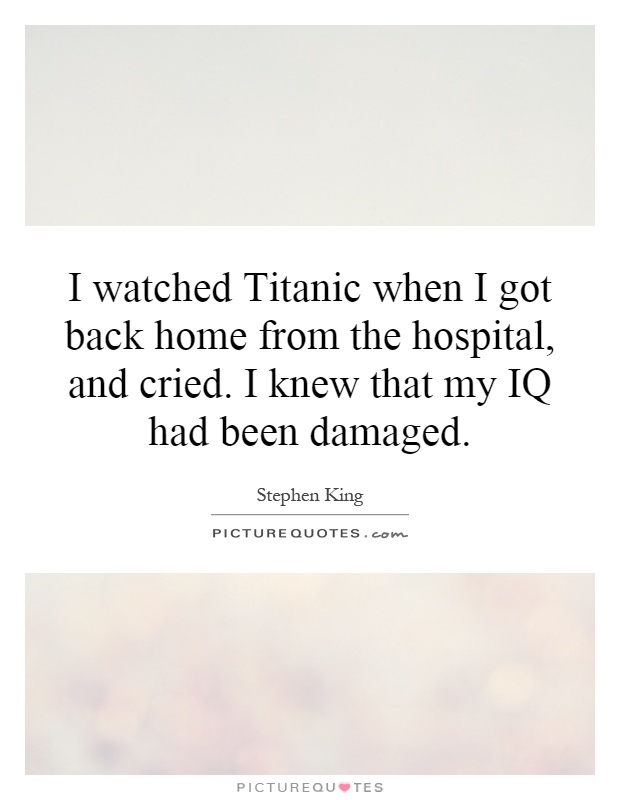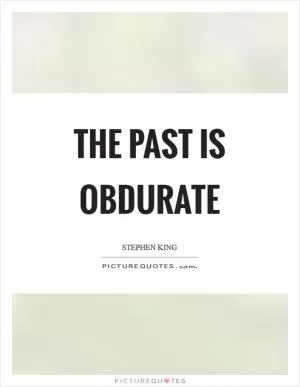I watched Titanic when I got back home from the hospital, and cried. I knew that my IQ had been damaged

I watched Titanic when I got back home from the hospital, and cried. I knew that my IQ had been damaged
Stephen King, the master of horror and suspense, is known for his ability to tap into the deepest fears and emotions of his readers. His novels often explore the darker side of human nature, delving into the psychological depths of his characters. In his works, King often delves into the concept of trauma and its lasting effects on the human psyche.The quote, "I watched Titanic when I got back home from the hospital, and cried. I knew that my IQ had been damaged," could easily be a line from one of King's novels. The juxtaposition of a seemingly innocuous event, watching a movie, with a profound realization about one's own mental state is a hallmark of King's storytelling.
In the context of Stephen King, this quote could be interpreted as a moment of self-awareness and introspection for the character. The act of watching a movie, particularly one as emotionally charged as Titanic, triggers a flood of emotions and memories that the character may have been suppressing. The tears shed while watching the film could be a release of pent-up emotions, a cathartic moment that allows the character to confront their own vulnerability and fragility.
The mention of being in the hospital adds another layer of complexity to the quote. Hospitals are often associated with illness, injury, and trauma, both physical and emotional. The character's realization that their IQ has been damaged could be a metaphor for the lasting effects of their hospitalization, both on a cognitive and emotional level. It suggests a sense of loss, of a part of themselves that has been irrevocably changed by their experience.












 Friendship Quotes
Friendship Quotes Love Quotes
Love Quotes Life Quotes
Life Quotes Funny Quotes
Funny Quotes Motivational Quotes
Motivational Quotes Inspirational Quotes
Inspirational Quotes